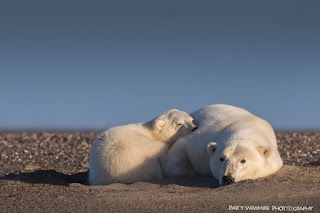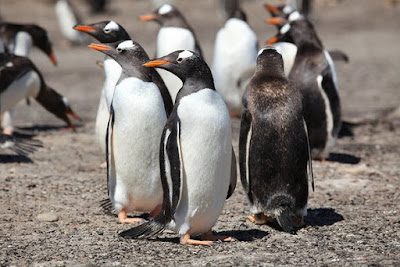Pinguins na Antárctida
Colony of Gentoo penguins in the Antarctic
créditos: © Paul Hilton/ Greenpeace
A poluição por microplásticos já chegou à Antárctida, de acordo com um estudo da Universidade de Coimbra (UC) publicado no dia 2 de Outubro na revista Scientific Reports, do grupo Nature.
Uma equipa de investigadores do Centro de Ciências do Mar e do Ambiente (MARE) da Faculdade de Ciências e Tecnologia da UC (FCTUC) “encontrou, pela primeira vez, microplásticos em pinguins da Antártida, confirmando que este tipo de poluição já entrou na cadeia alimentar marinha”.
Pinguim na Antárctida
créditos: © UC | José Xavier
via Observador/ Antarctida
“Ao analisarem a dieta de pinguins gentoo Pygocelis papua em duas regiões da Antárctida, os investigadores observaram que 20% das 80 amostras de fezes das aves continham microplásticos”
FCTUC, nota enviada à Lusa
As partículas de plástico, com comprimento inferior a cinco milímetros, têm “diversas tipologias, formas e cores, o que indica uma grande variedade de possíveis fontes destes microplásticos”,
José Xavier
A poluição marinha por plásticos é reconhecidamente uma ameaça aos oceanos em todo o mundo, mas só recentemente tem havido um aumento do esforço científico sobre microplásticos”, sublinha a FCTUC.
Para Filipa Bessa, co-autora do artigo, “é alarmante que microplásticos já tenham chegado à Antárctida". Este estudo é “o primeiro a registar microplásticos em pinguins e na cadeia alimentar marinha Antárctica”,
Filipa Bessa, investigadora, FCTUC
credits: Microplastics in gentoo penguins from the Antarctic region
“A variedade de microplásticos encontrados nos pinguins poderá indicar diferentes fontes de poluição, indiciando uma difícil solução para este problema”, sublimha ainda Filipa Bessa.
José Xavier, autor sénior do artigo, que “este estudo vem na altura certa, pois os microplásticos podem causar efeitos tóxicos nos animais marinhos e nada se sabe sobre o que eles poderão provocar nos animais da região Antárctica”.
“Esta descoberta é de muita importância para desenvolver novas medidas para reduzir a poluição na Antárctida, particularmente relacionada com plásticos, podendo servir de exemplo para outras regiões do mundo”.
José Xavier, docente investigador Departamento de Ciências da Vida da FCTUC
A group of researchers from the Portuguese University of Coimbra (UC) first detected microplastic remains in the food chain of penguins that inhabit Antarctica, a finding that experts have described as “alarming.”
The fieldwork, published in the journal Scientific Reports, reveals that at least 20 percent of the feces samples of penguins analyzed had microplastic remains, with particles less than 5 millimeters in volume.
“The material was of different types and colors, so there is a wide variety of possible sources of these microplastics,” reads the statement issued by the Portuguese university.
Map of location of the sampling islands
(Bird Island and Signy Island) in the Scotia Sea
“It is alarming that microplastics have already reached Antarctica and our study is the first to register them in the marine food chain,”
Filipa Bessa, lead author of the article
The researcher stressed the complexity of the problem, due, among other factors, to the existence of “different sources of contamination” from which the microplastics come.
Geração 'explorer'
22.10.2019
sources: Notícias UC/ Nature.com/





















